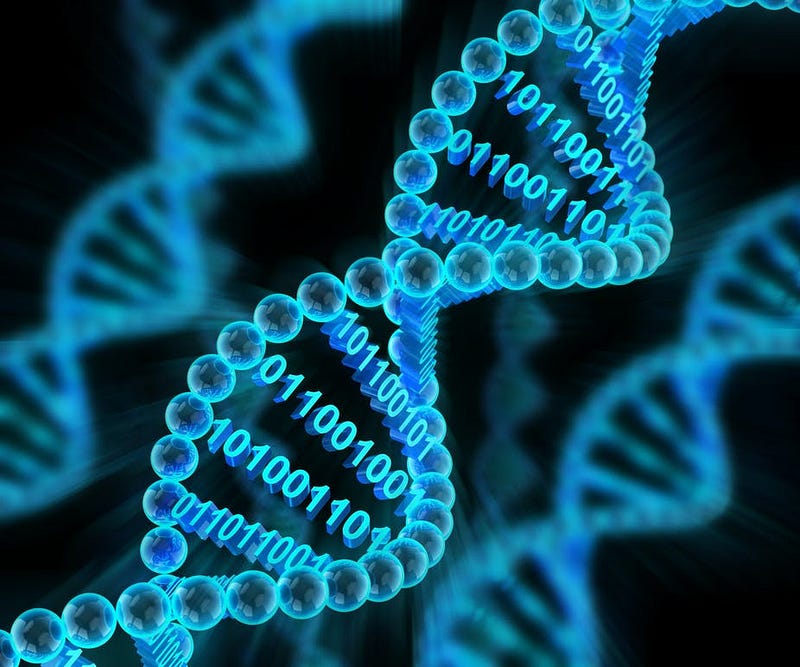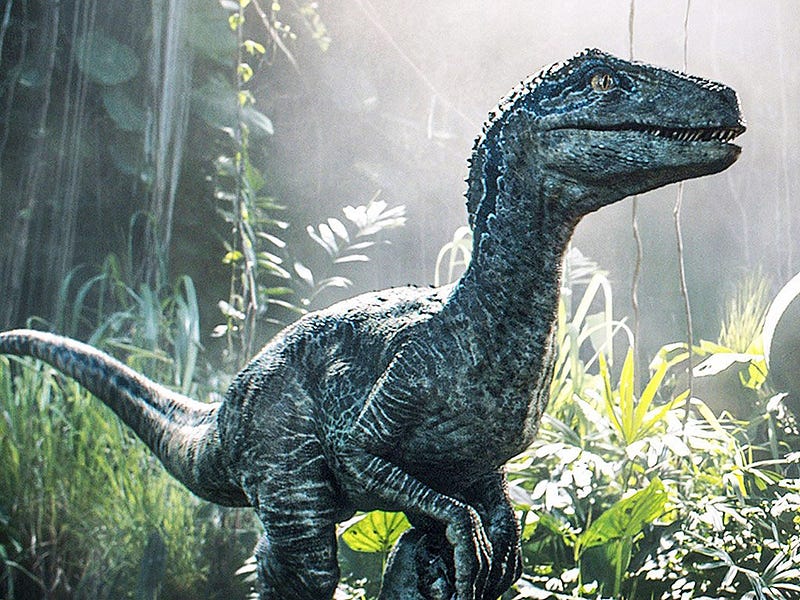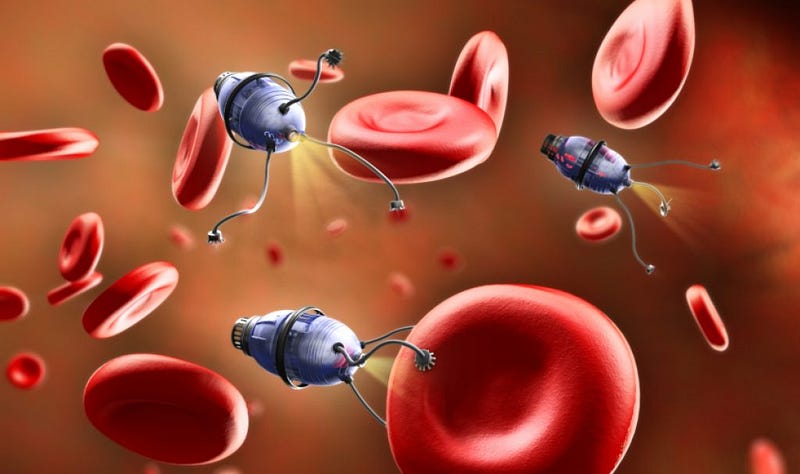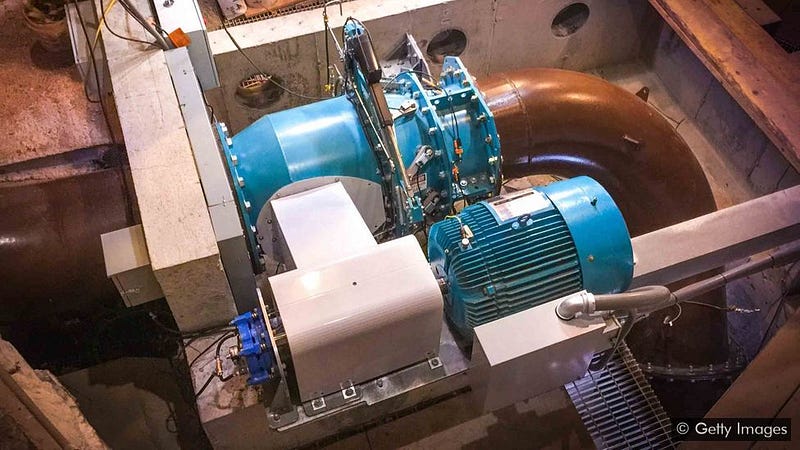# Scientific Milestones I'd Like to Witness in My Lifetime
Written on
Exploring Future Scientific Frontiers
The often-misquoted phrase that "everything that can be invented has been invented" was stated over a century ago. If that were indeed the case, we wouldn't be able to engage with this article, connecting from vast distances through illuminated screens. Science has evolved remarkably over the last few centuries, turning what was once deemed impossible into reality. While science has addressed many global challenges, it is inherently imperfect and always in a state of advancement, leaving room for further discoveries.
In this narrative, I will outline a few scientific breakthroughs I hope to witness in my lifetime. While I harbor doubts about the realization of these wishes, dreaming remains a harmless pursuit, doesn't it?

Chapter 1: Revolutionary Computing
DNA-Based Computing
Computation can be viewed as the execution of an algorithm—essentially, a detailed list of instructions that processes input to produce a result. In the realm of DNA computing, information is encoded using the four-character genetic code (A for adenine, G for guanine, C for cytosine, and T for thymine), as opposed to the traditional binary system (1s and 0s). This is made possible by the ability to synthesize short DNA strands of any desired sequence. Thus, an algorithm's input might be represented by specific DNA sequences, with laboratory procedures (like sorting or segmenting strands) executing the instructions, culminating in a result defined by the characteristics of the final DNA collection.
I often wonder if the concept of a personal computer that can store vast amounts of data is within reach. Could we also develop DNA RAM?

Chapter 2: Reviving the Past
A Prehistoric Theme Park
I think it's safe to say that most readers are familiar with the film "Jurassic Park" or at least have some knowledge of its premise. The idea of resurrecting dinosaurs begins with a mosquito preserved in amber, containing ancient DNA. But is this concept scientifically viable, or merely a figment of fiction? Amber, formed from tree resin over millennia, has indeed preserved insects from the dinosaur era. However, as noted by experts, while mosquitoes can encapsulate remnants, they often do not preserve soft tissues or blood.
The quest for dinosaur DNA extends beyond amber, as traces of blood have been discovered in ancient insects outside of this medium. If such a venture were to materialize, I would eagerly want to be among the first visitors.

Chapter 3: Immersive Technology
Full-Dive Virtual Reality
When using a Virtual Reality headset, despite the stunning visuals and thrilling experiences, one is constantly aware that the environment is not real. Game controllers limit physical interaction, and the sensation of a real-world couch becomes apparent. Full-dive Virtual Reality, however, would elevate immersion to a point where the distinction between reality and the virtual world vanishes. This concept envisions a direct connection between the brain and a computer through a specialized interface—akin to the scenario portrayed in "The Matrix." Only external intervention could disconnect a user from this immersive experience, akin to a lucid dream where you remain conscious yet unsure of your surroundings.
If you're curious about the potential of this technology, I recommend watching "Sword Art Online."

Chapter 4: The Quest for Infinite Energy
Perpetual Motion Machines
Perpetual motion refers to the hypothetical operation of a device that, once initiated, would continue indefinitely without additional energy input. Such machines defy the fundamental laws of thermodynamics and are therefore impossible. Nevertheless, the allure of perpetual motion has captivated inventors and the public for centuries. The promise of an endlessly free energy source is undeniably enticing, even though the laws of physics firmly preclude its feasibility.
A perpetual motion machine is a theoretical construct capable of performing work eternally without an external energy source, which is unattainable due to its contradiction of established thermodynamic principles.

Chapter 5: Theoretical Physics and Beyond
Teleportation
Is teleportation truly beyond our reach? In 1993, a team of scientists demonstrated that perfect teleportation is theoretically possible and compliant with the laws of physics. Recently, researchers in the US and China have made strides in this area. Notably, Chinese scientists achieved the "teleportation" of photons to a satellite 300 miles away by utilizing quantum entanglement. This phenomenon, which Einstein referred to as "spooky action at a distance," allows pairs of photons to share states even when separated by significant distances. Altering the state of one photon instantaneously affects the other, irrespective of the distance separating them.
While scientists are beginning to explore how to leverage this phenomenon for information transfer, the concept of teleportation remains a distant dream. Perhaps, like many imaginative ideas, it serves as a reminder that not everything conceivable should come to fruition—after all, most people prefer to arrive at their destination intact.

Chapter 6: The Promise of Nanotechnology
Advancements in Nanomedicine
Numerous scientific fields have reaped the rewards of nanotechnology advancements, particularly in developing new pharmaceutical products. This overview emphasizes the entry of nanomedicines into the market, addressing the controversies surrounding these nanosystems and the diverse methodologies employed to enhance understanding. The unique properties of nanoscale materials introduce challenges in developing new drug products, especially regarding regulatory issues within the European context. This discussion will cover current applications and prospective developments in nanomedicine.
Imagining a future where I could mend broken bones instantaneously after a friendly sparring match intrigues me—assuming such a scenario becomes a reality.

Chapter 7: Transitioning to Sustainable Energy
The Future of Clean Energy
It is well-documented that the combustion of fossil fuels releases harmful pollutants into the atmosphere, exacerbating climate change and threatening wildlife and public health. Fortunately, renewable energy sources present an opportunity to mitigate these adverse effects while providing economic and environmental benefits. To avert further damage to ecosystems and communities, it is crucial to support clean energy initiatives and policies aimed at transitioning to zero-carbon energy sources.
While there are promising renewable energy options available, I remain skeptical about their ability to fully replace fossil fuels. We require a more potent, eco-friendly energy source to preserve our planet's biodiversity; otherwise, we risk devastating the entire ecosystem.
In conclusion, these are the scientific advancements I hope to witness in my lifetime.